Resources
Here you can search external resources from STOP Spillover's experts (tagged in blue) and resources developed by the STOP Spillover project (tagged in red).
We found 26 resources.
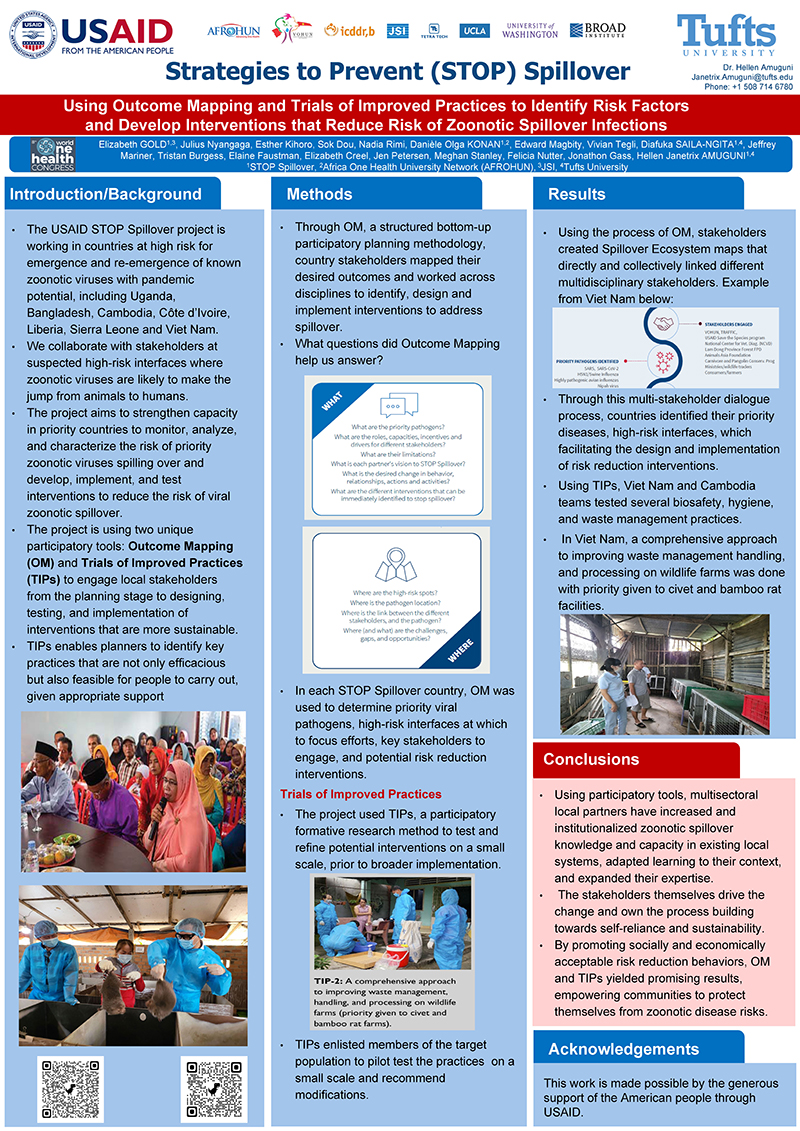
This STOP Spillover poster, presented at the 8th World One Health Congress 2024, describes the project's use of two unique participatory tools—Outcome Mapping and Trials of Improved Practices—to engage local stakeholders from the planning stage to designing, testing, and implementing interventions that are more sustainable.
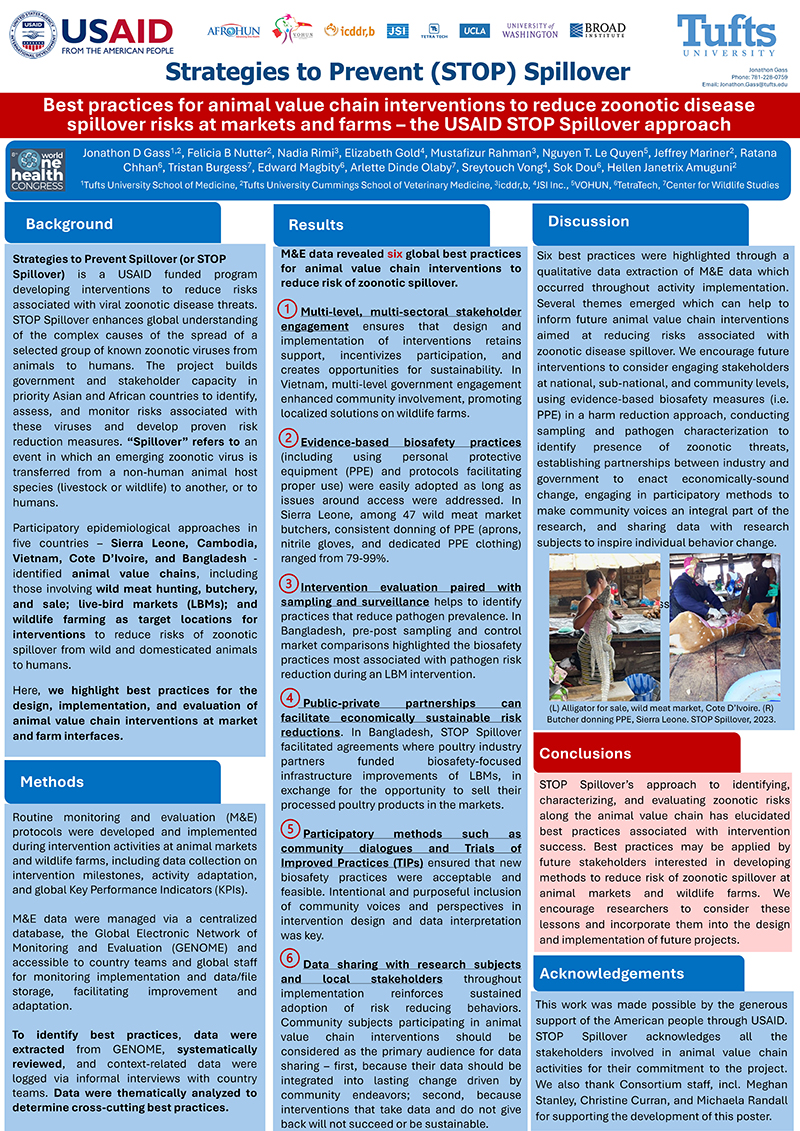
This STOP Spillover poster, presented at the 8th World One Health Congress 2024, describes six best practices for the design, implementation, and evaluation of animal value chain interventions at market and farm interfaces. The best practices were identified through qualitative data extraction of monitoring and evaluation data.
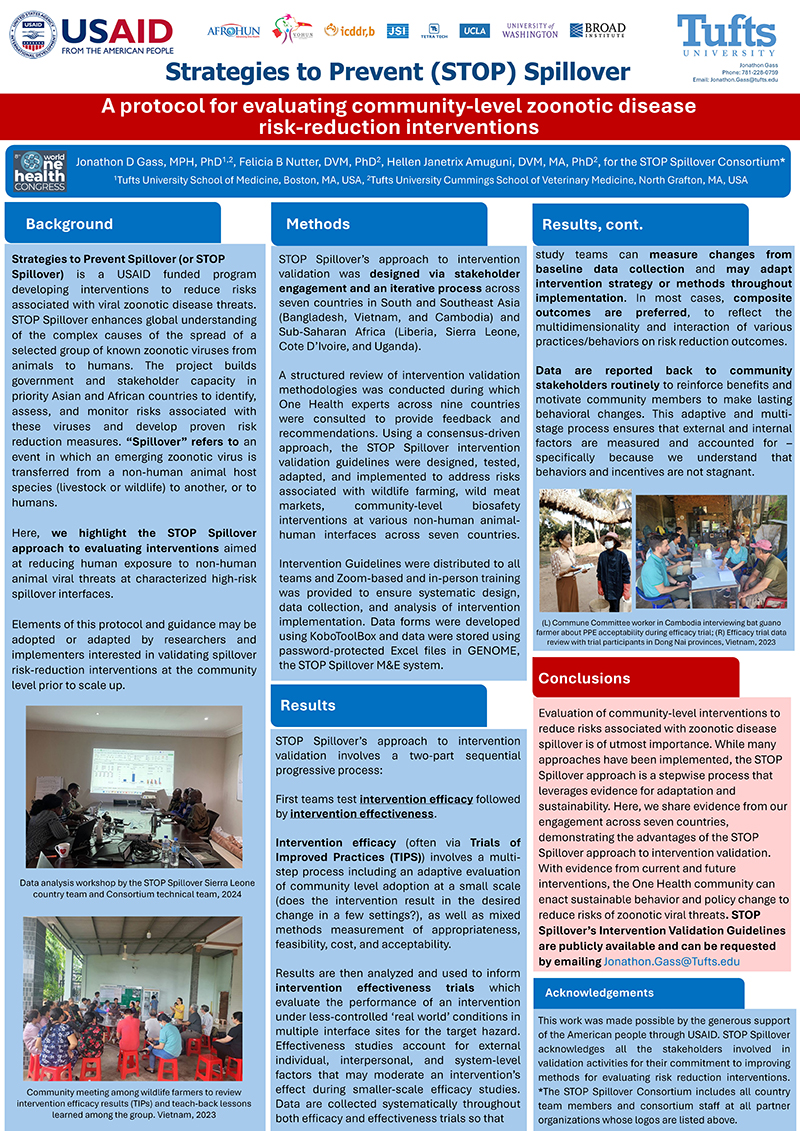
A Protocol for Evaluating Community-Level Zoonotic Disease Risk Reduction Interventions
This STOP Spillover poster, presented at the 8th World One Health Congress 2024, describes the project's approach to intervention validation, which was designed via stakeholder engagement and an iterative process across seven countries in South and Southeast Asia and Sub-Saharan Africa to address risks associated with wildlife farming, wild meat markets, and community-level biosafety interventions at various non-human animal-human interfaces.
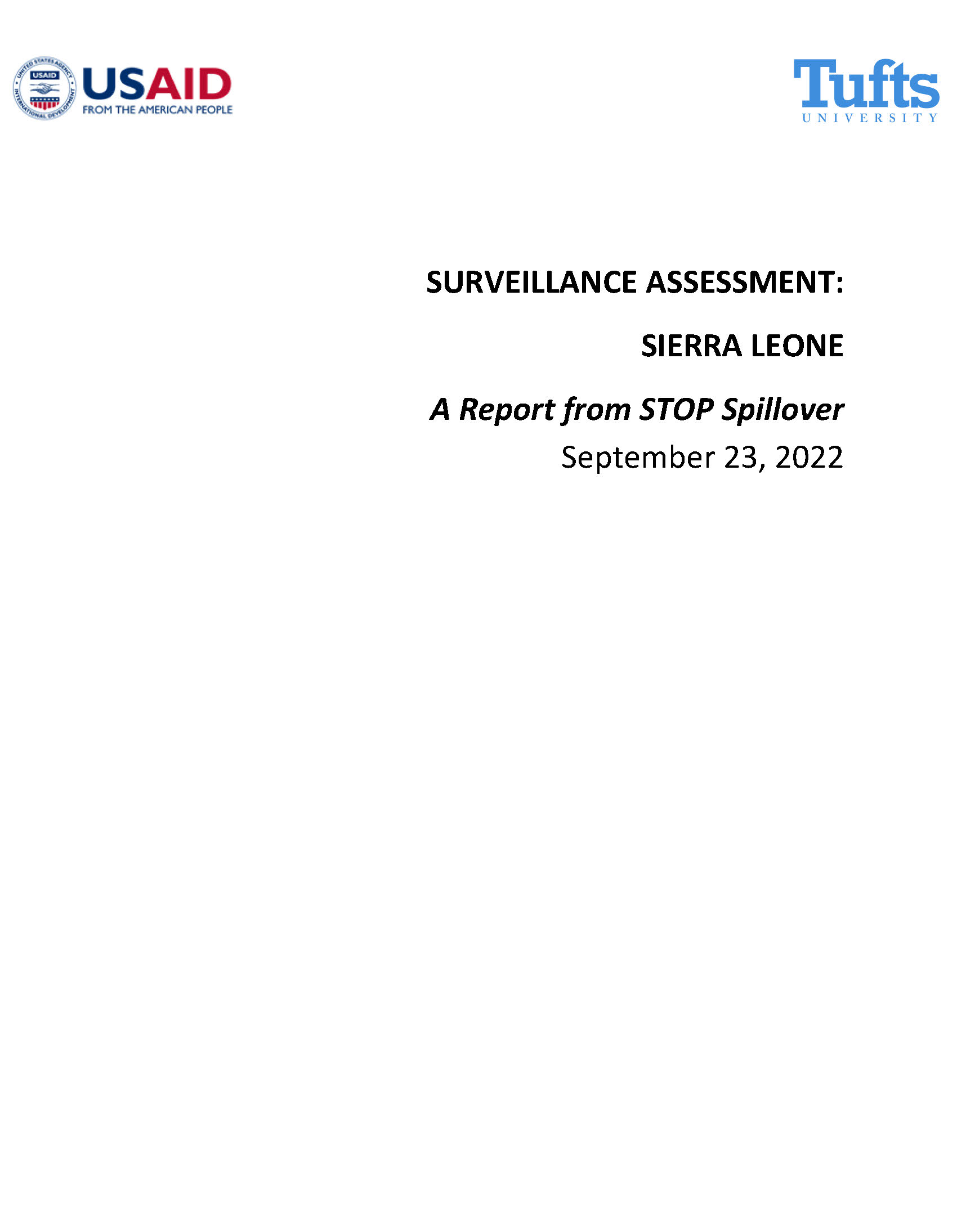
Sierra Leone Surveillance Assessment
This report summarizes the STOP Spillover Sierra Leone surveillance assessment, which was implemented to ensure that the project's activities complement existing surveillance activities, build on country capacity, and identify synergies and areas of mutual interest among stakeholders and institutions in Sierra Leone.
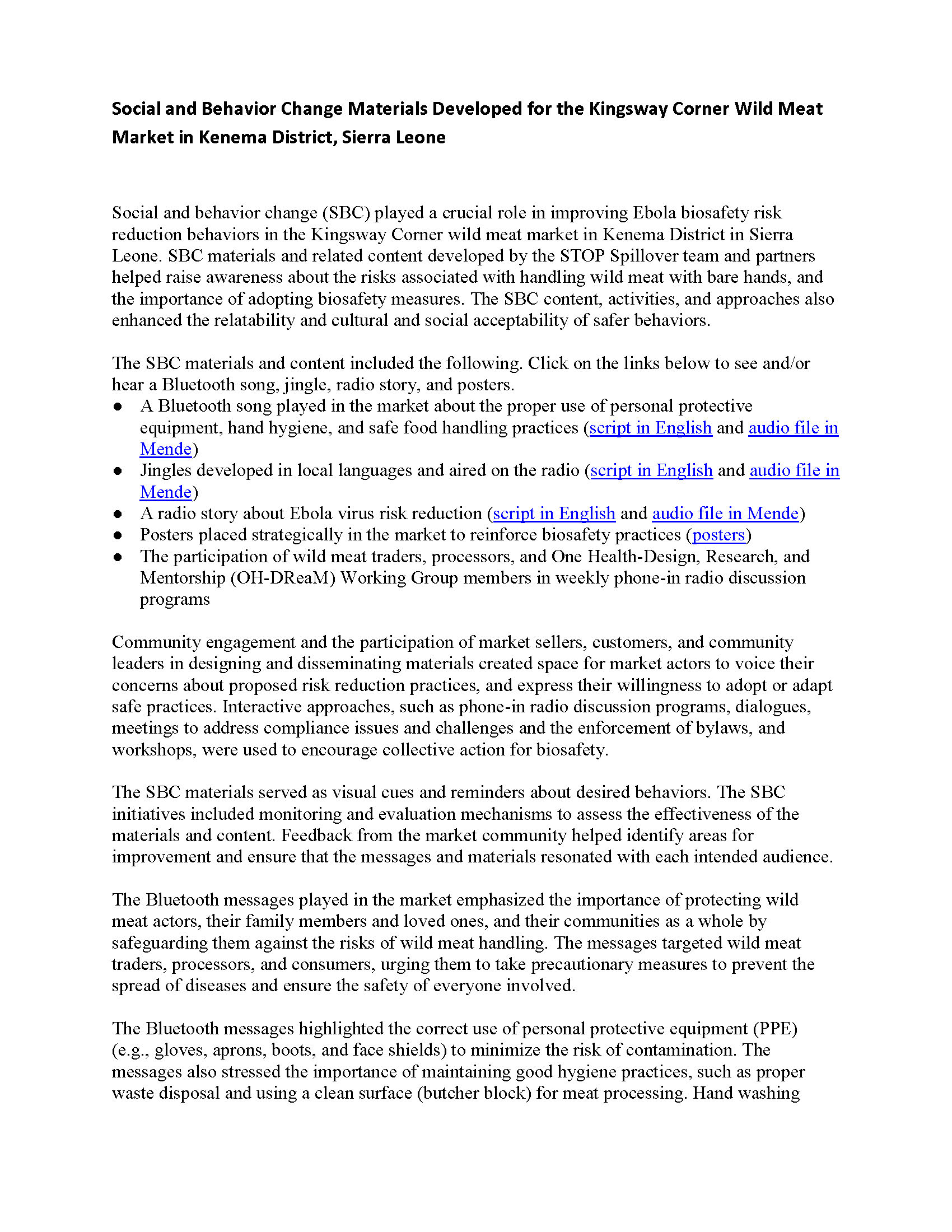
This resource describes and contains links to social and behavior change (SBC) materials developed by the STOP Spillover Sierra Leone Country Team and partners to raise awareness about the risks associated with handling wild meat and support the adoption of biosafety risk reduction behaviors in the Kingsway Corner wild meat market in Kenema District.
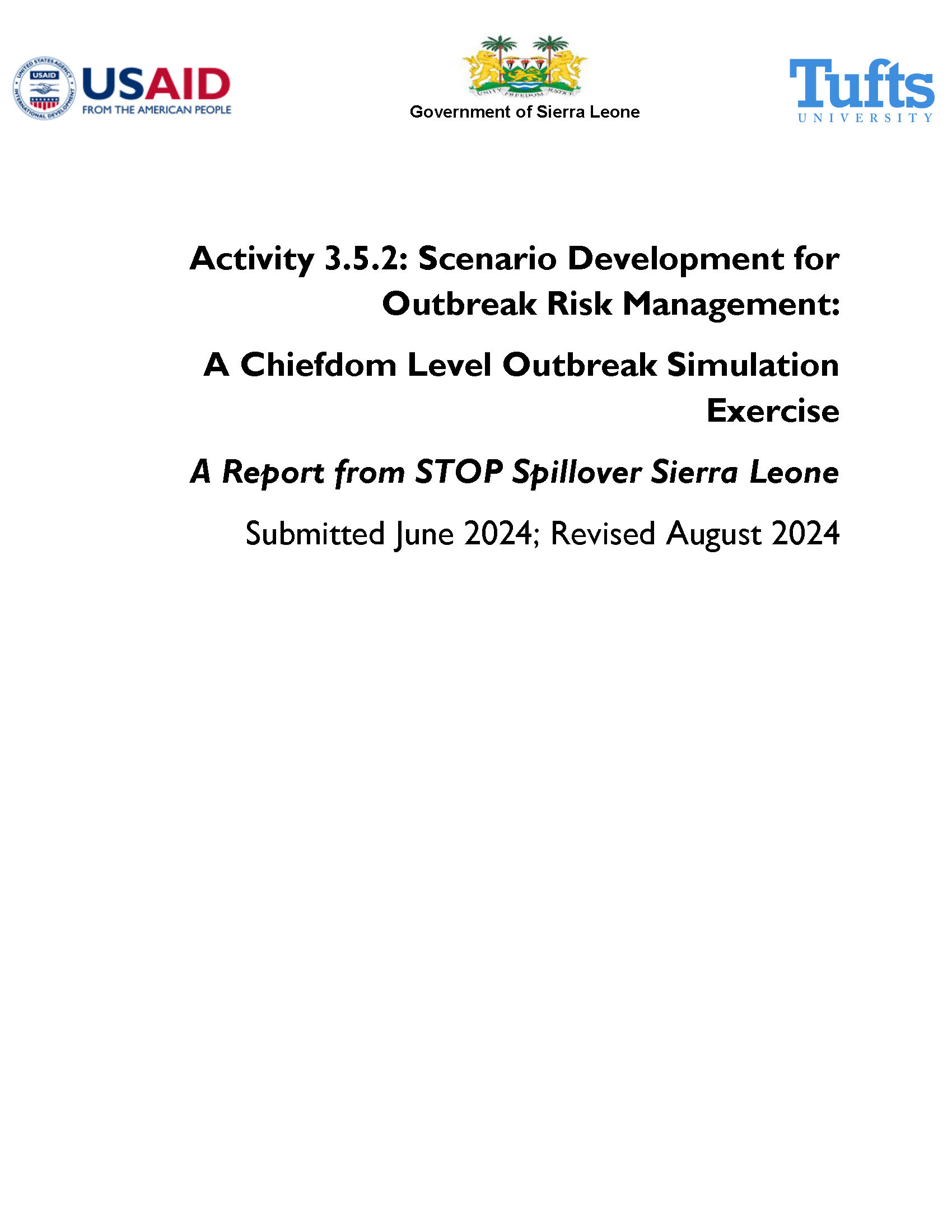
Scenario Development for Outbreak Risk Management: A Chiefdom Level Outbreak Simulation Exercise
This report summarizes a tabletop simulation exercise developed by STOP Spillover to test community-level response preparedness for viral hemorrhagic fever (VHF) outbreaks. The exercise was conducted in five chiefdoms in Kenema District in Sierra Leone to assess epidemic preparedness and readiness at a high-risk interface.
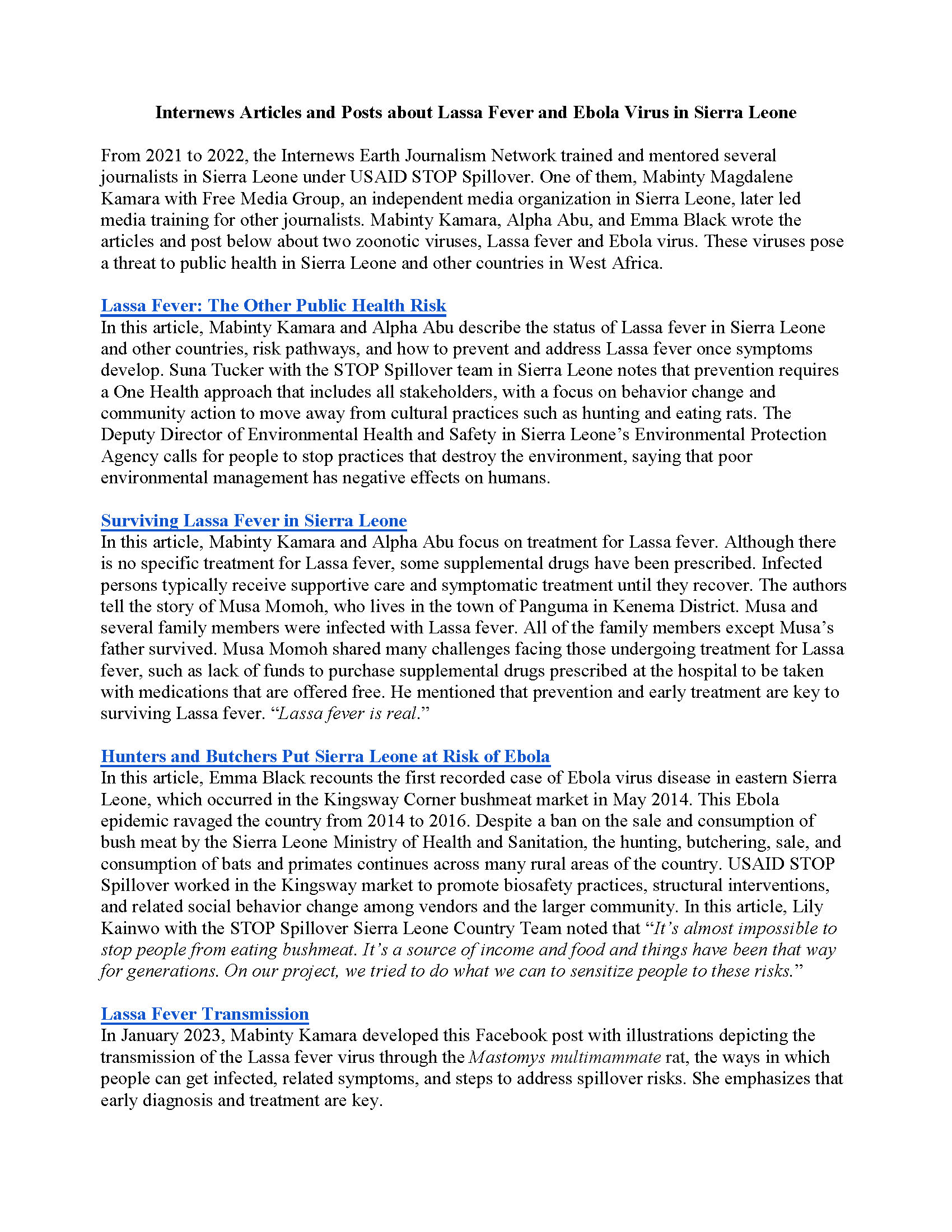
Internews Articles and Posts about Lassa Fever and Ebola Virus in Sierra Leone
Through STOP Spillover, the Internews Earth Journalism Network trained and mentored several journalists in Sierra Leone. This resource contains descriptions and links to articles and posts that the journalists published about Lassa virus and Ebola virus.
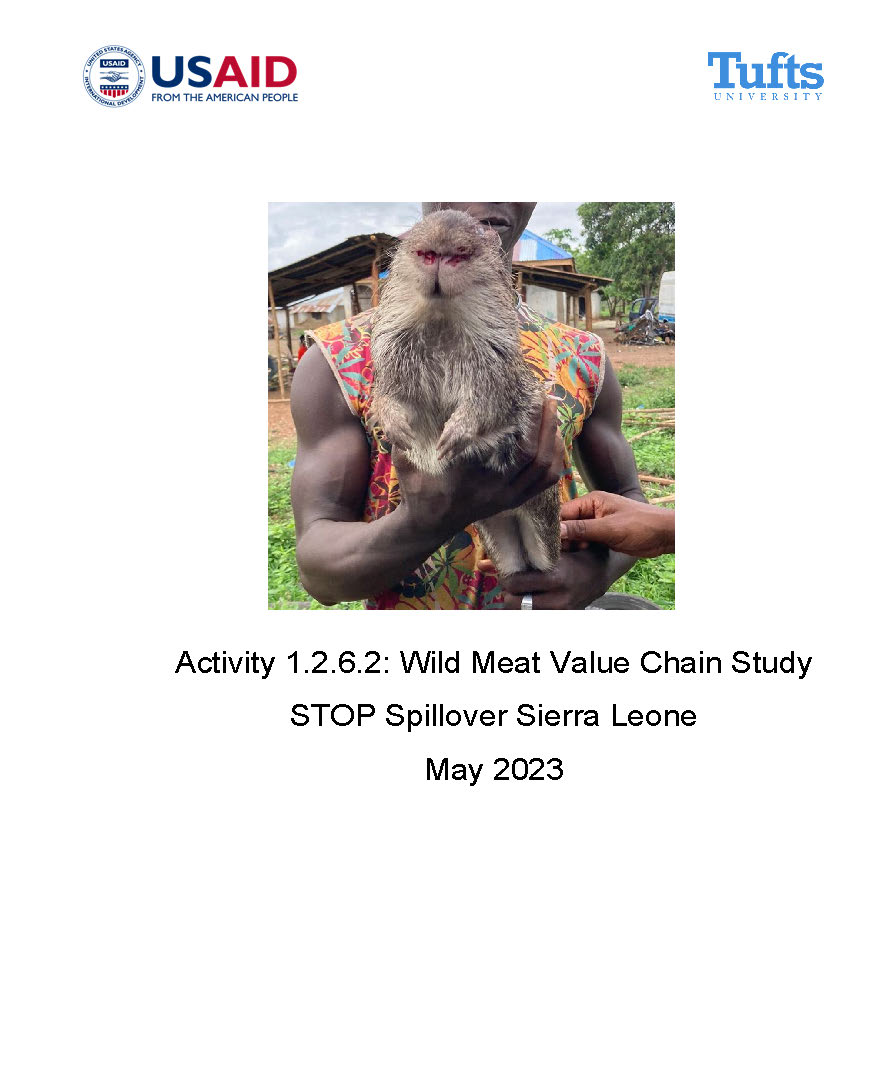
This report describes a study by the STOP Spillover Sierra Leone Country Team to identify critical control points along the wild meat value chain in Kenema District, social drivers and determinants of wildlife hunting and consumption, and behaviors of value chain actors that may be associated with an increased risk of zoonotic spillover.
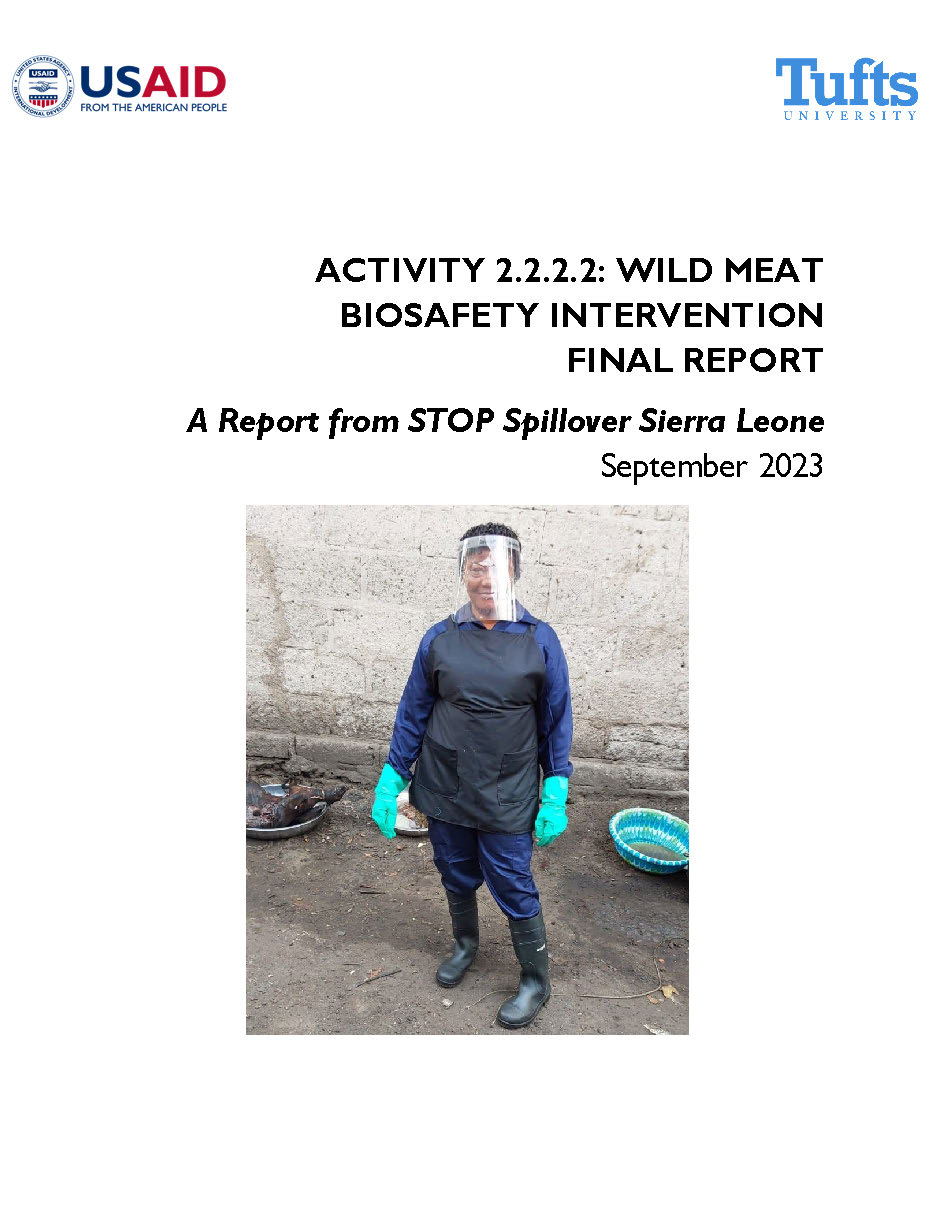
Wild Meat Biosafety Intervention Final Report
This report presents results from the final three months of implementation of biosafety practices among wild meat traders and processors in the Kingsway Corner Wet Market in Kenema District in Sierra Leone.
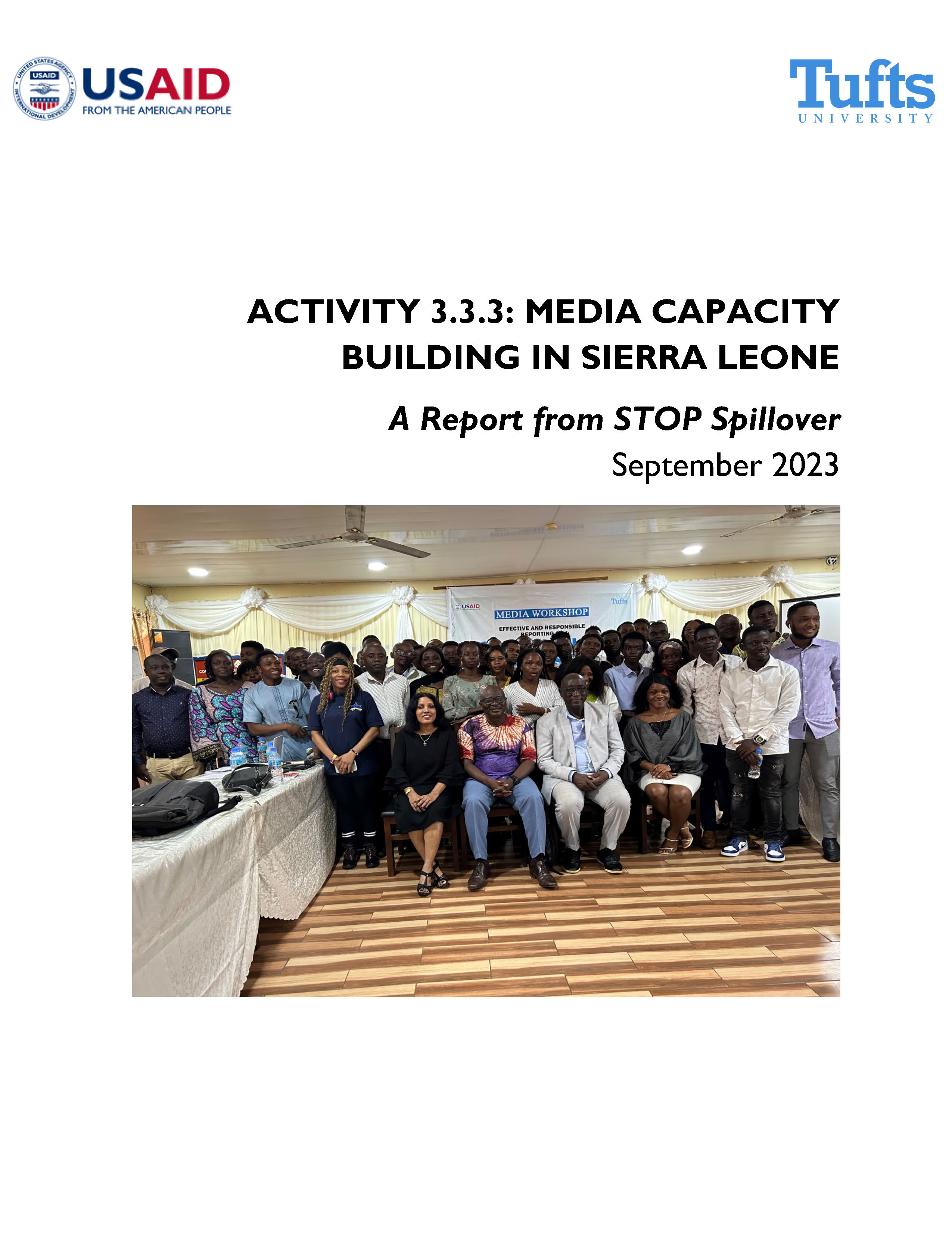
Media Capacity Building in Sierra Leone
This report describes a three-day training for journalists from national and regional media outlets in Sierra Leone. Sixty journalists participated in the training, which focused on enhancing journalists' capacity to report on zoonotic diseases and the One Health approach.
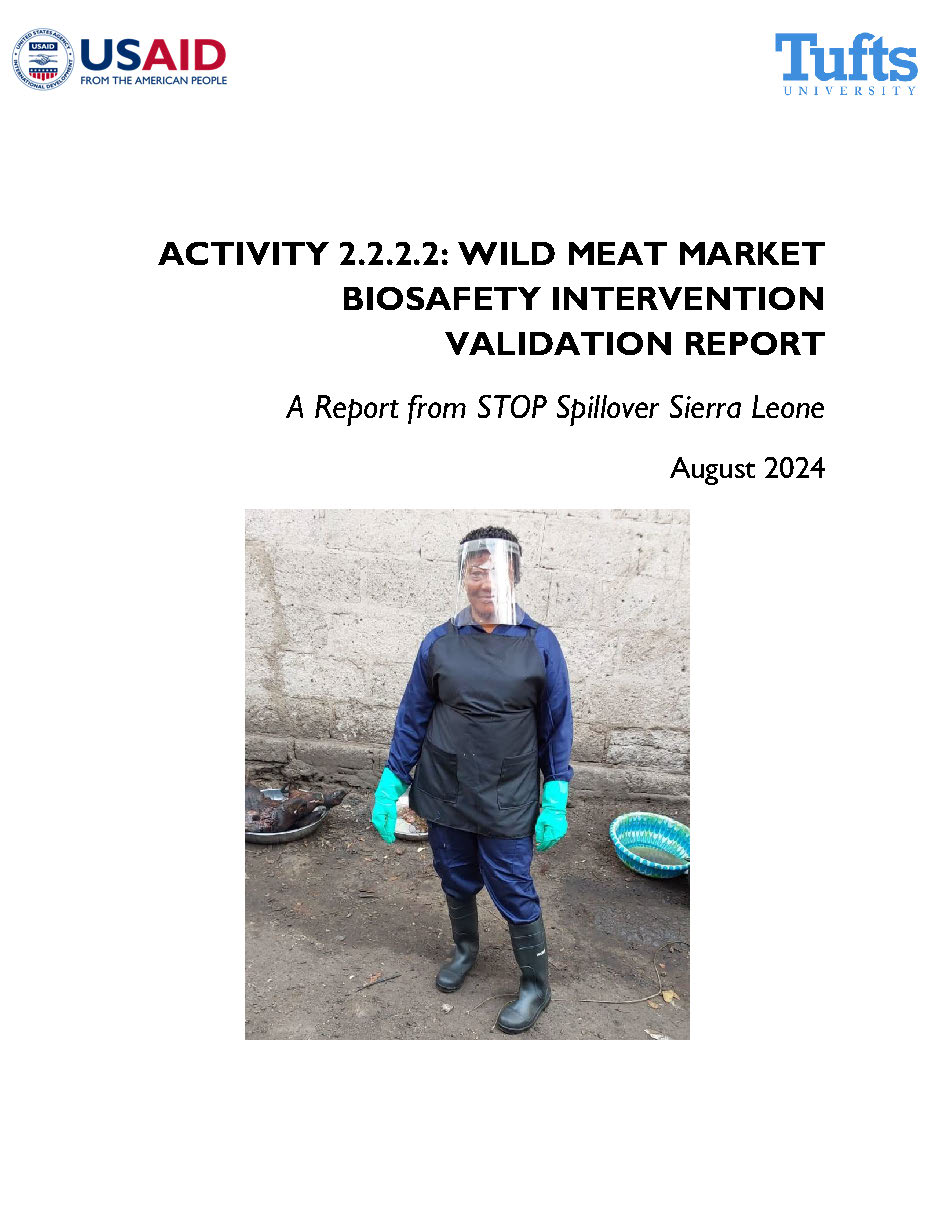
Wild Meat Market Biosafety Intervention Validation Report
This report summarizes a final validation exercise conducted by the STOP Spillover Sierra Leone Country Team in the Kingsway Corner Market in Kenema District. The exercise focused on identifying key factors influencing the adoption of co-designed risk reduction behaviors by wild meat traders and processors in the market.
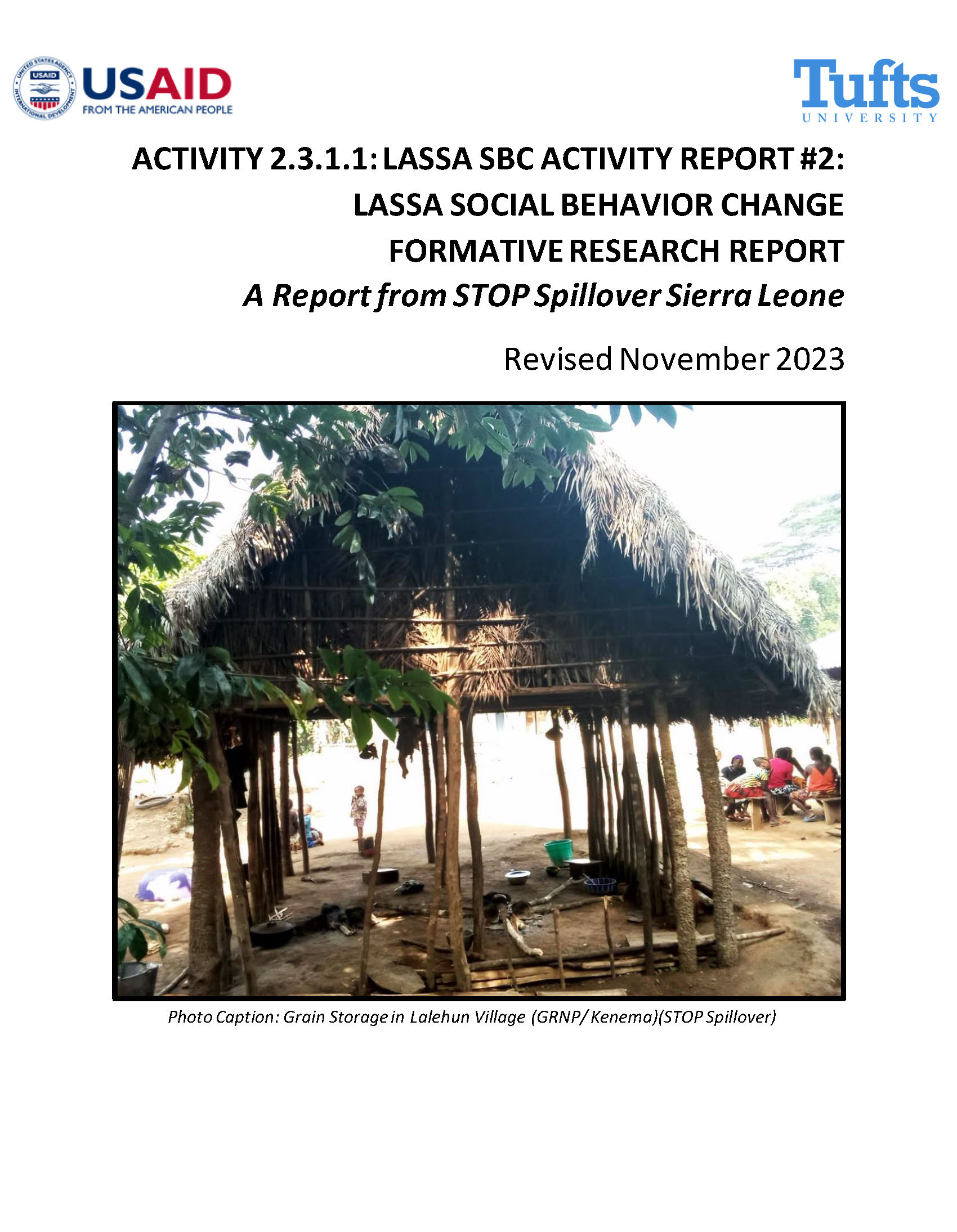
Lassa Social Behavior Change Formative Research Report
This report summarizes research findings on social norms and behaviors that affect or influence Lassa virus spillover risks in Kenema District, Sierra Leone, including local practices, beliefs, and social norms; populations and groups at high risk for Lassa spillover; traditional cultural norms, beliefs, and practices that influence spillover risk; and trusted sources of information.
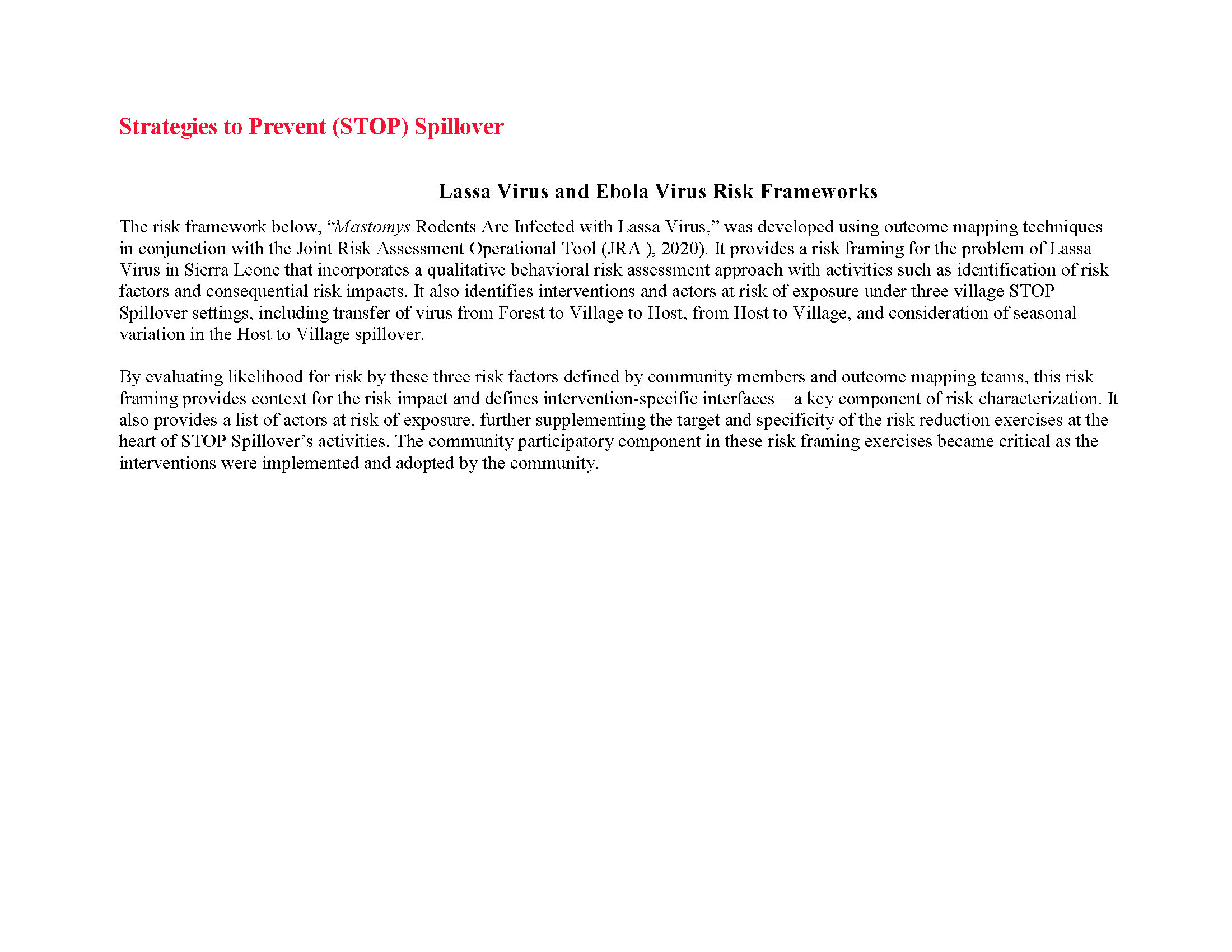
Lassa Virus and Ebola Virus Risk Frameworks
This document includes two risk frameworks for Sierra Leone: "Mastomys Rodents Are Infected with Lassa Virus" and "Bushmeat Are Infected with Ebola Virus." Community participation in the development of the risk frameworks was critical for the implementation of targeted interventions.
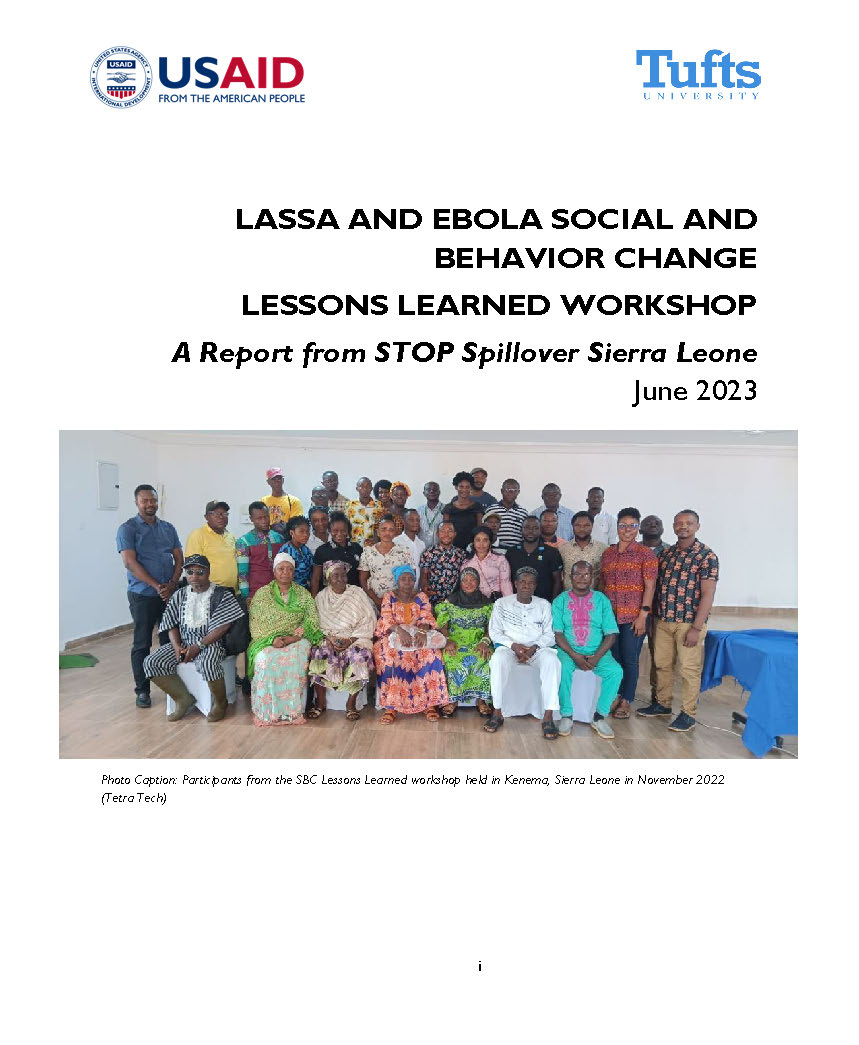
Lassa and Ebola Social and Behavior Change Lessons Learned Workshop
This report summarizes a workshop conducted by the STOP Spillover Sierra Leone Country Team to identify lessons learned and promising social and behavior change practices to reduce Lassa virus and Ebola virus spillover risks.
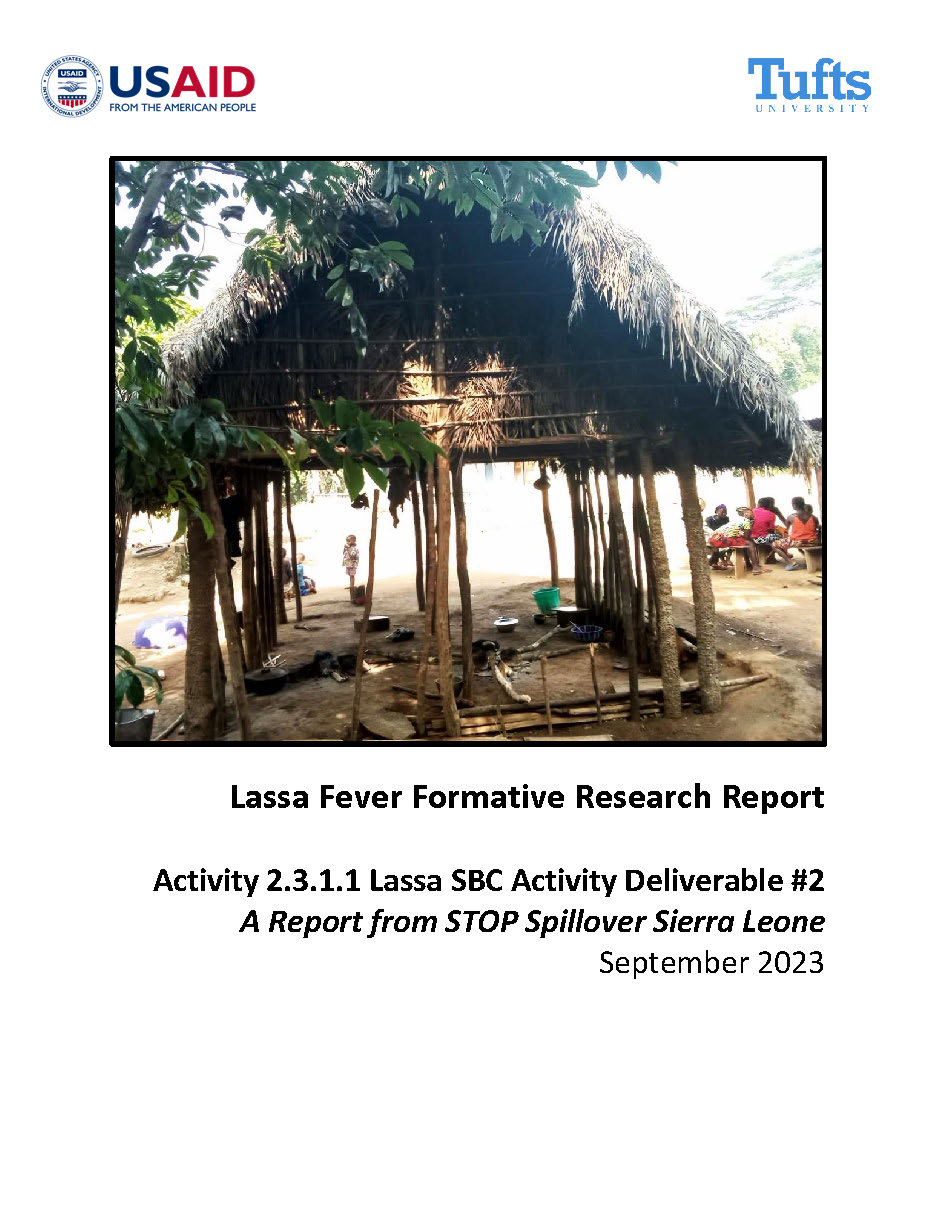
Lassa Fever Formative Research Report
This report summarizes formative research on the influencing factors (i.e., the political, economic, cultural, and environmental factors) and social and gender norms that facilitate or impede behavior change related to reducing risk for Lassa virus transmission in Kenema District in Sierra Leone.
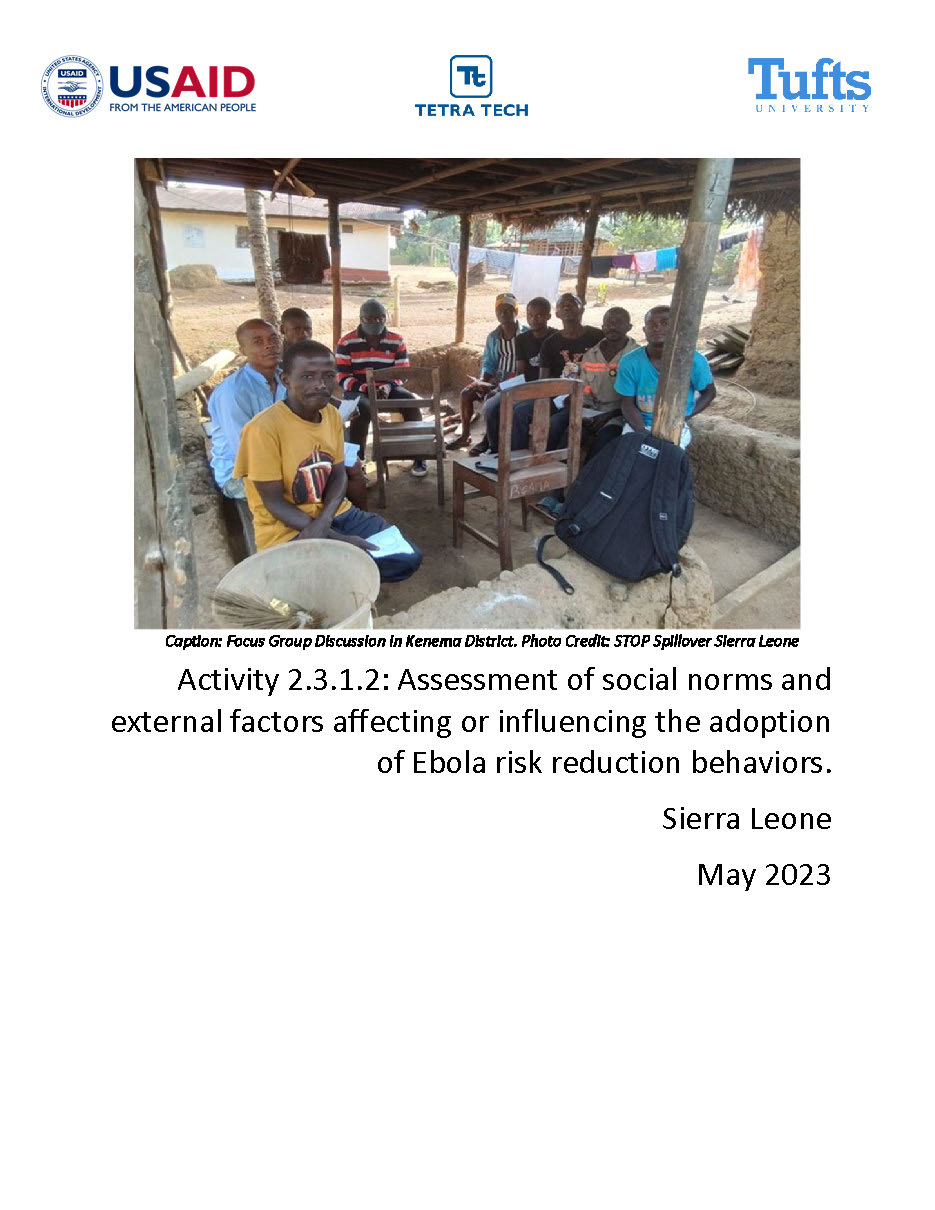
This report provides a summary of research findings on social norms and external factors that affect or influence the adoption of Ebola prevention behaviors in Kenema District, Sierra Leone. Some of the factors studied included local knowledge of Ebola infection, Ebola prevention measures, and cultural norms, social norms, and practices that influence risk.
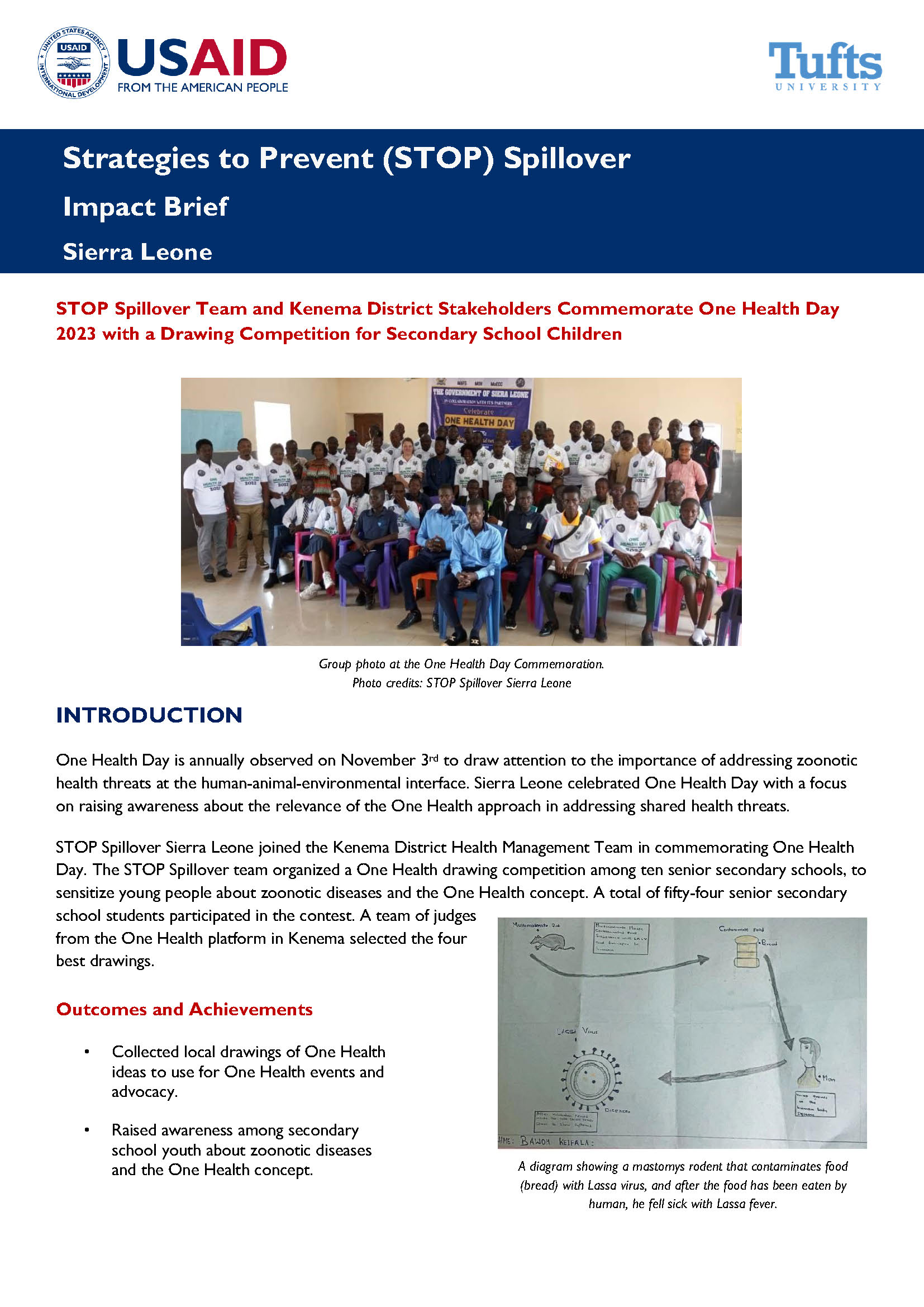
This brief describes a collaborative effort by the STOP Spillover Sierra Leone Country Team and the Kenema District Health Management Team to commemorate One Health Day. The activity featured a One Health drawing competition among ten senior secondary schools to sensitize young people to zoonotic diseases and One Health.
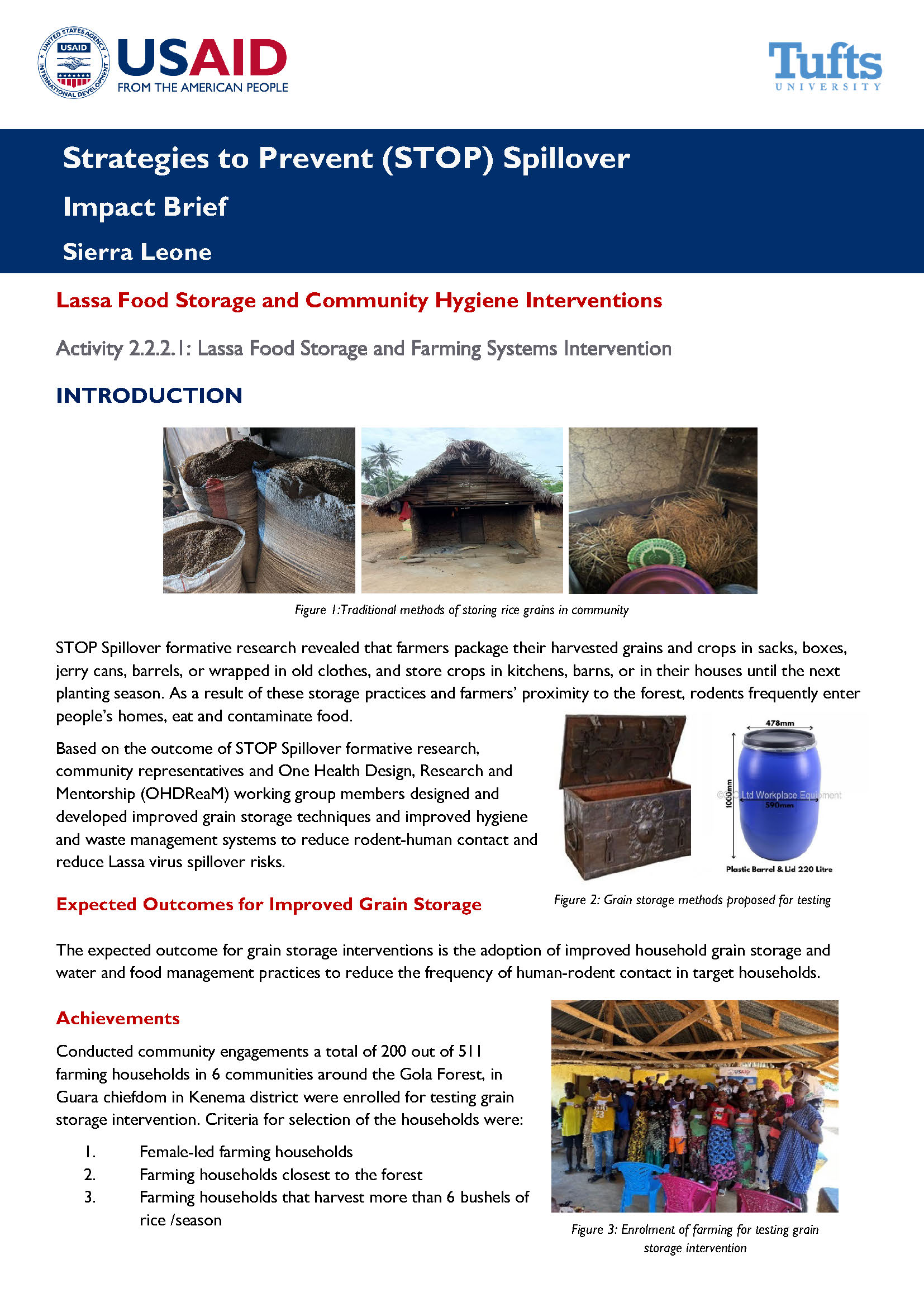
Impact Brief: Lassa Food Storage and Community Hygiene Interventions
This brief describes the testing of improved grain storage techniques and hygiene and waste management systems to reduce rodent-human contact and Lassa virus spillover risks in three communities in Sierra Leone.
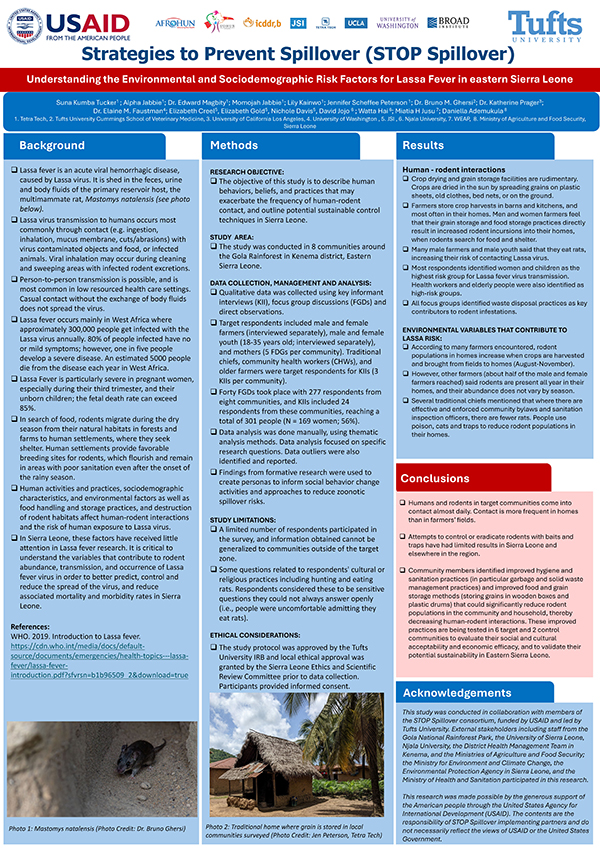
This STOP Spillover poster, presented at the June 2024 Global Health Security Conference, describes the Sierra Leone Country Team's study of the human behaviors, beliefs, and practices that influence the frequency of human-rodent contact and the spread of Lassa virus. Data were collected through focus groups, key informant interviews, and direct observation.
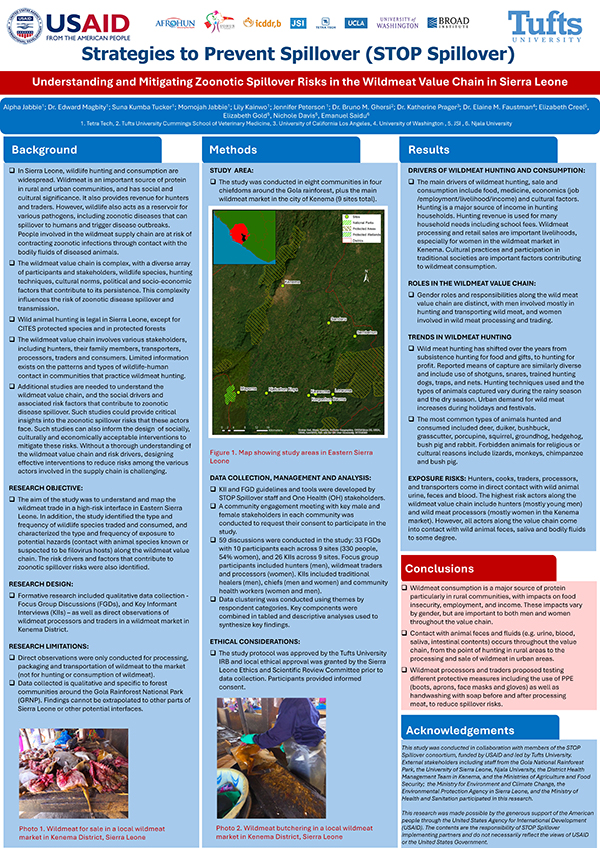
Understanding and Mitigating Zoonotic Spillover Risks in the Wildmeat Value Chain in Sierra Leone
This STOP Spillover poster, presented at the June 2024 Global Health Security Conference, describes the Sierra Leone Country Team's study of the wildmeat trade in a high-risk interface in Eastern Sierra Leone, which found that the main drivers of wildmeat hunting, sale, and consumption are food, medicine, economics, and cultural factors.